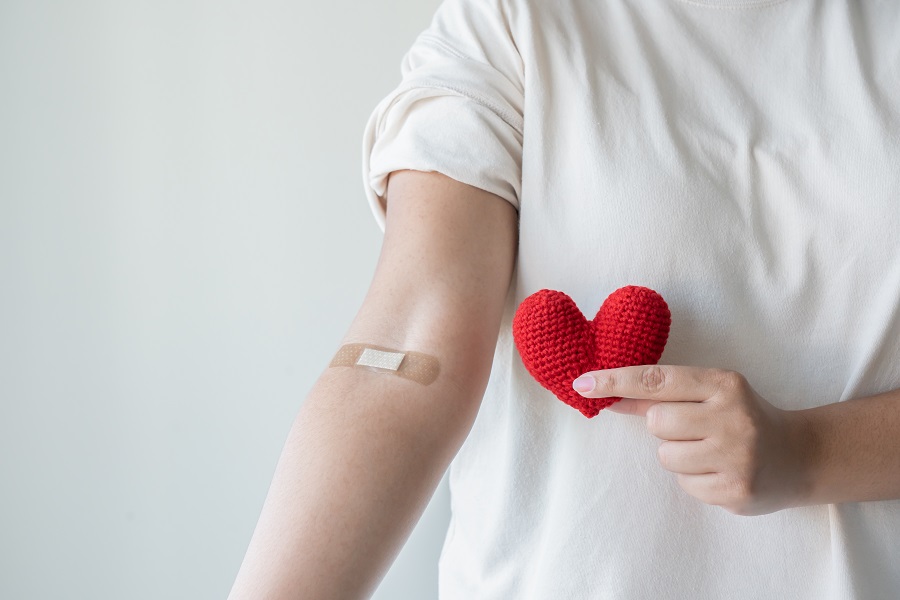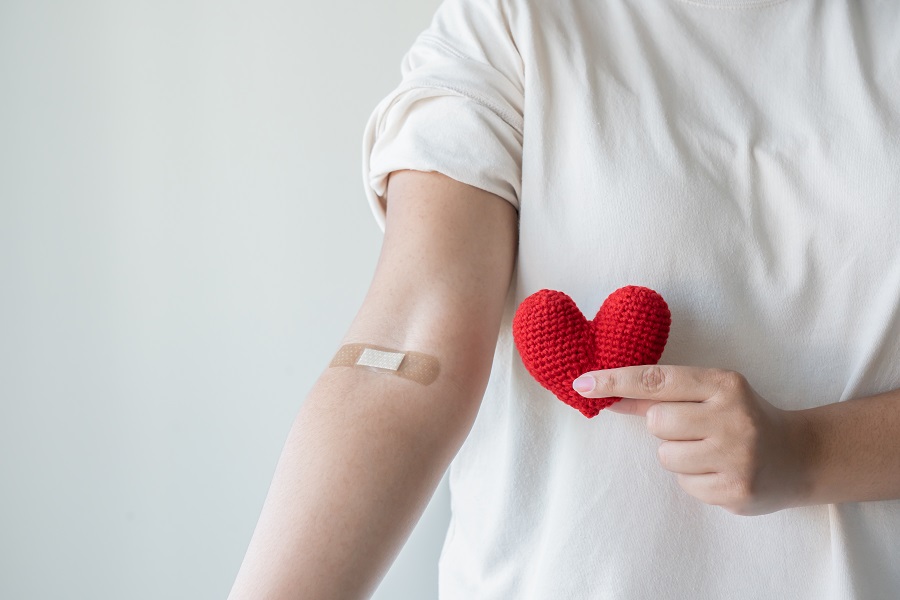
According to The Memorial Blood Centers, someone needs a blood transfusion approximately every two seconds. National Blood Donor Month brings awareness to this need during the month of January when the blood supply tends to be at its lowest.
University of Minnesota Medical School expert and chief medical officer for the Association for the Advancement of Blood and Biotherapies Claudia Cohn, MD, PhD explains why donating blood is needed now more than ever.
Q: What are some of the causes of low blood donation levels right now?
Dr. Cohn: The blood supply is typically lower during the winter months, since blood donations often decrease because of the holidays, travel schedules, inclement weather and illness. But, the need for blood still exists — victims of car accidents still arrive in emergency departments and cancer patients still require chemotherapy, for example, both of which use life-saving blood transfusions.
Q: How could getting a COVID-19 vaccine impact someone’s ability to donate blood?
Dr. Cohn: The FDA does not require a deferral on blood donations after a COVID-19 vaccine, however, some blood centers might implement a short-term (less than two-weeks) deferral after someone has been vaccinated, as some people feel mildly ill after their shot.
Q: What precautions do blood donation centers take to protect donor safety, especially during the winter months when a variety of viral illnesses are more prevalent?
Dr. Cohn: Blood donation sites are taking extra measures to ensure donor safety. They have staggered donation appointments to avoid groups of people standing in line, and they have made sure all donation stations maintain social distancing. All surfaces are wiped down and all personnel are masked. It is probably safer to donate blood than it is to go to a crowded supermarket. If you are interested in donating, find and contact your local blood center to learn more.
Q: The FDA has announced that they plan to reconsider blood donation laws for gay and bisexual men, who face restrictions that have long been controversial. What information can you share on this?
Dr. Cohn: The FDA originally created a blanket ban on blood donations from men who have sex with men (MSM) as they were considered a high-risk group for HIV transmission. However, a homosexual man in a monogamous relationship poses no greater risk to the blood supply than anyone else. Currently, the FDA is trying to assess the safety of using “individual risk assessment,” which includes a series of questions for all blood donors, regardless of their gender or sexual orientation. These questions are being tested in the ADVANCE study (Assessing Donor Variability And New Concepts in Eligibility), which is an FDA funded effort to confirm the safety of individual risk assessment. The ADVANCE study was recently completed and the results are being analyzed by the FDA. It is widely believed that the FDA will reverse the blanket ban on MSM, but no announcement has been made.
Q: What are you doing in this area to advance public knowledge about the need for blood donations?
Dr. Cohn: The Association for the Advancement of Blood and Biotherapies works with blood centers, hospitals and the wider community to advance public knowledge about the need for blood donations. This work ranges from educational webinars to public service announcements when the blood supply is low. In my role at the AABB as chief medical officer, I have interacted with multiple media outlets to get the word out about the need for more blood.
Dr. Claudia Cohn is a professor of laboratory medicine and pathology in the University of Minnesota Medical School. She is the medical director of the M Health Fairview University of Minnesota Medical Center Blood Bank and leads the Association for the Advancement of Blood and Biotherapies as the chief medical officer. Dr. Cohn conducts research in the field of transfusion medicine and focuses her efforts in two areas: patient blood management and platelet storage and utilization.
-30-
About “Talking…with U of M”
“Talking…with U of M” is a resource whereby University of Minnesota faculty answer questions on current and other topics of general interest. Feel free to republish this content. If you would like to schedule an interview with the faculty member or have topics you’d like the University of Minnesota to explore for future “Talking…with U of M,” please contact University of Minnesota Public Relations at [email protected]
About the University of Minnesota Medical School
The University of Minnesota Medical School is at the forefront of learning and discovery, transforming medical care and educating the next generation of physicians. Our graduates and faculty produce high-impact biomedical research and advance the practice of medicine. Visit med.umn.edu to learn how the University of Minnesota is innovating all aspects of medicine.







